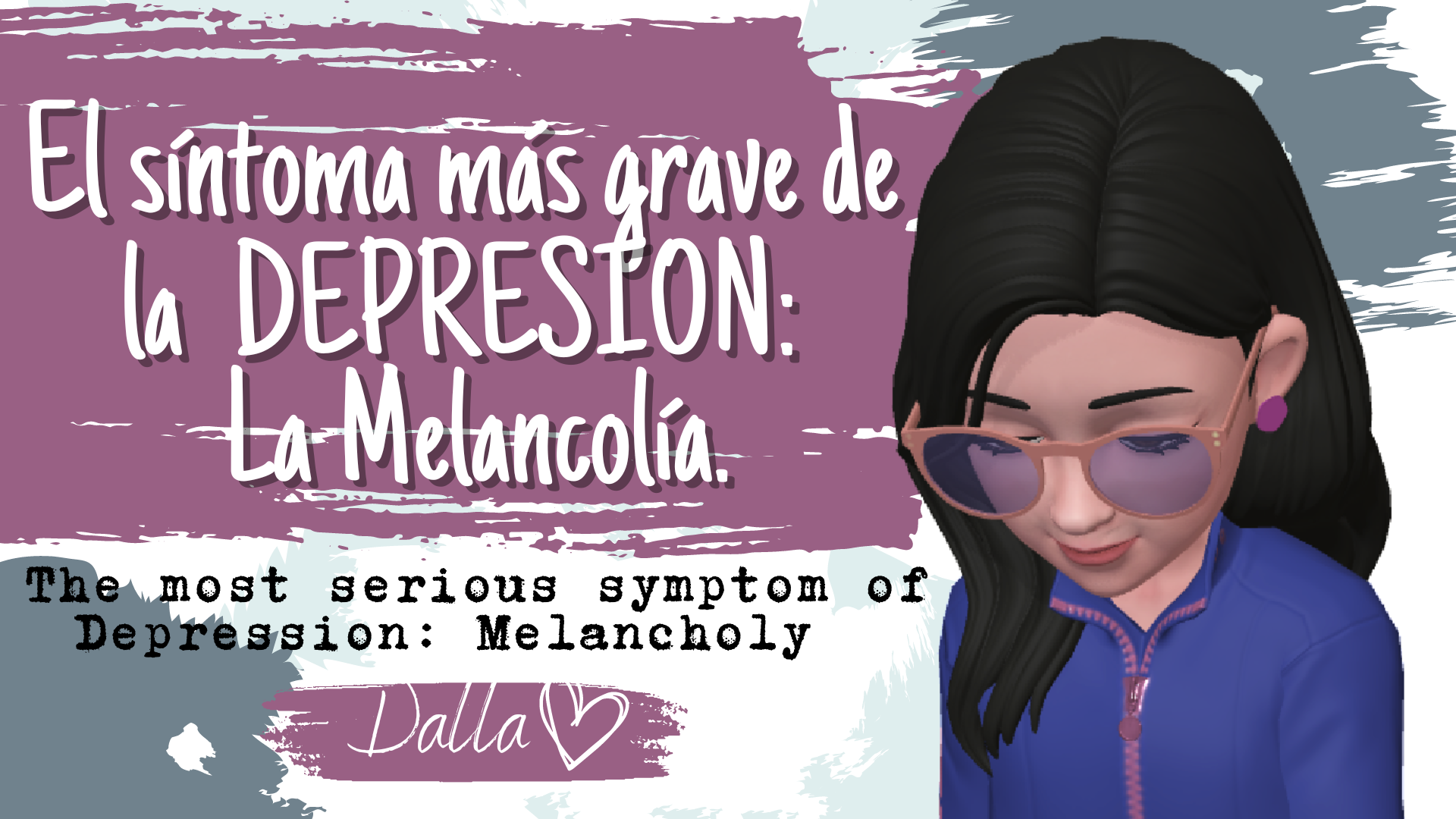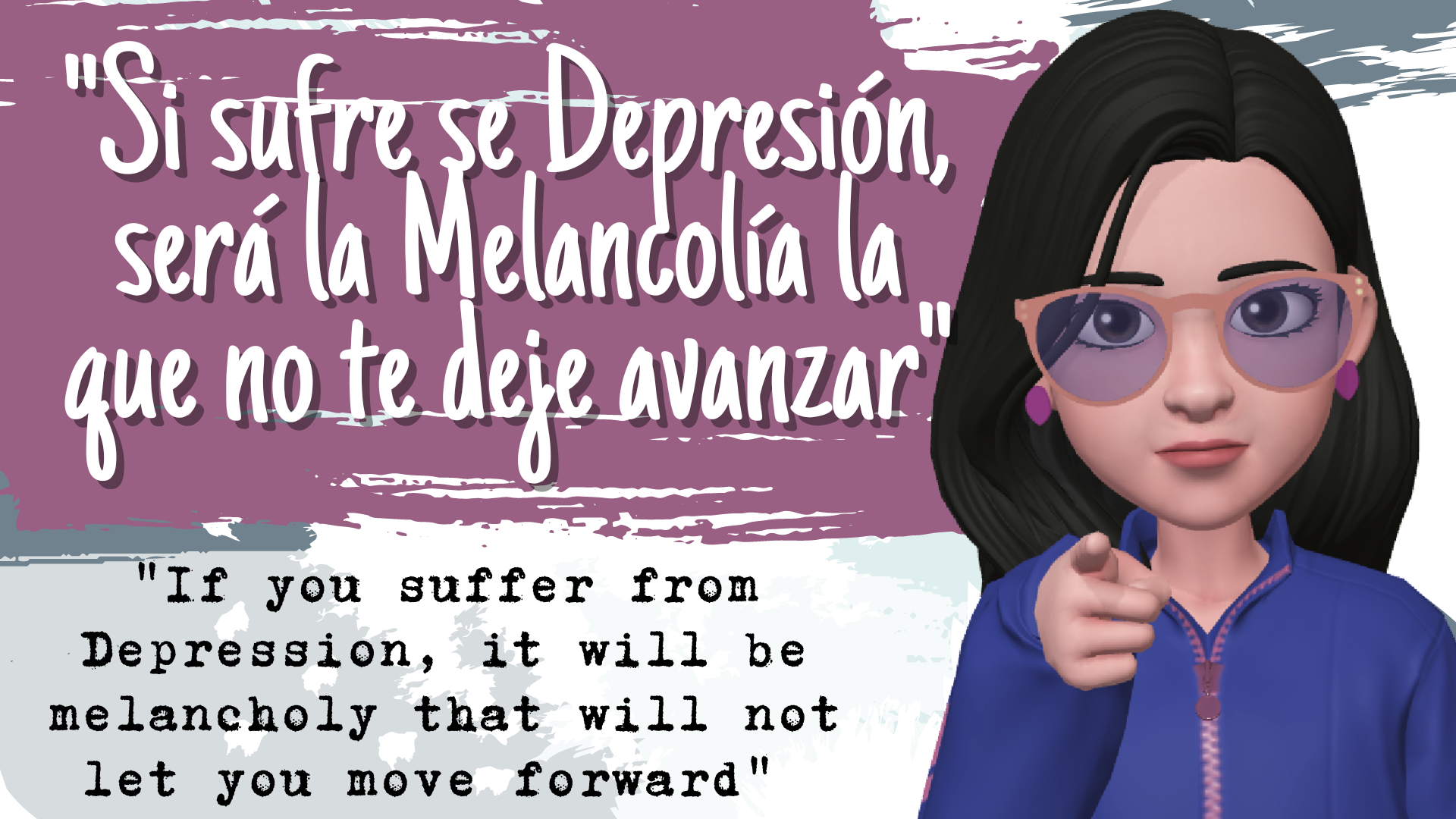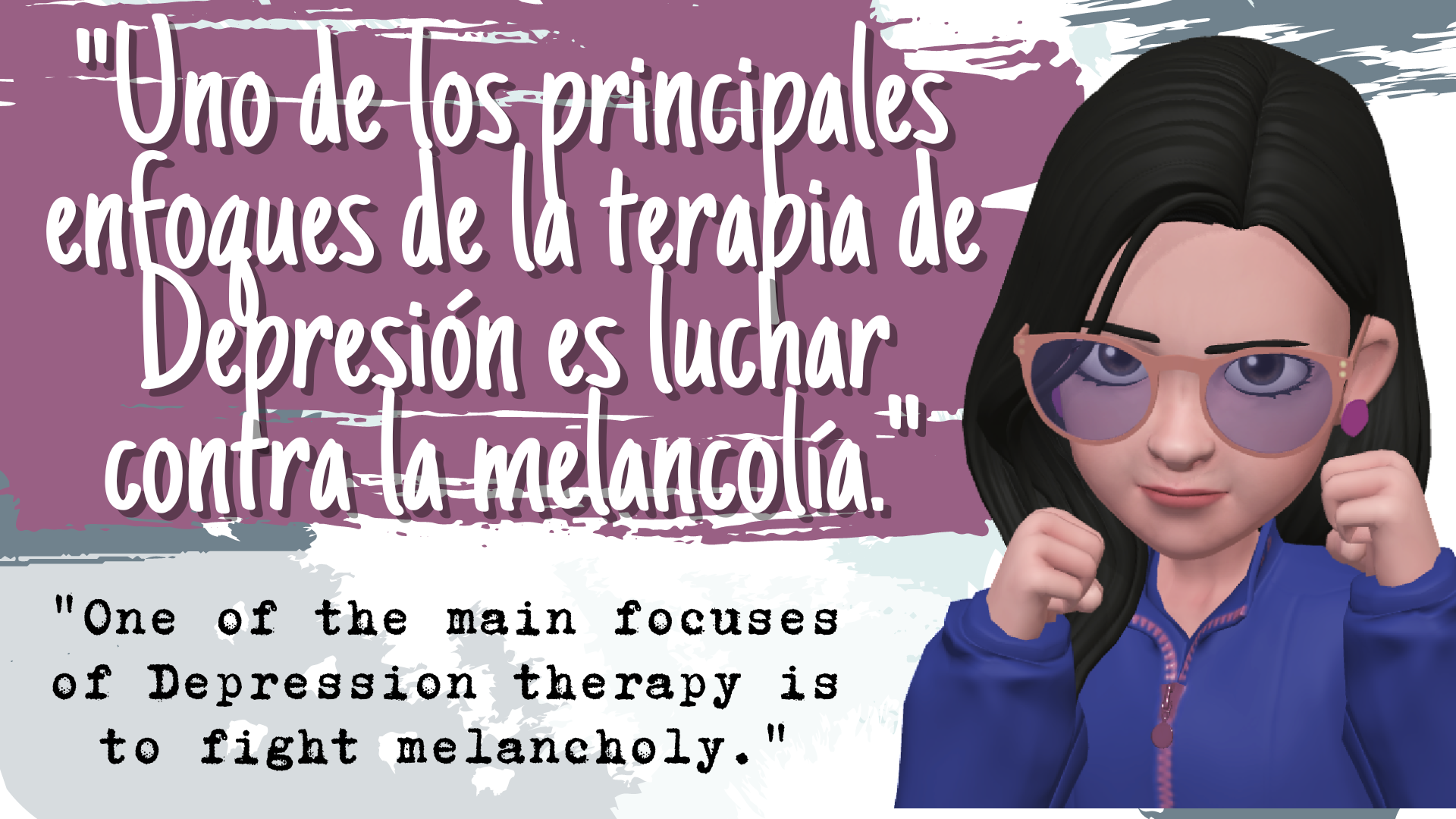

Cuando hablamos de Depresión hablamos de síntomas emocionales y físicos, es un organismo humano que ya ha cedido ante un largo sufrimiento y uno de los síntomas que lo ha llevado a eso, y que muchas veces es el que lo lleva a ese agotamiento extremo, es la Melancolía, te cuento un poco más de ella a continuación...
Uno de los síntomas más graves de la Depresión es justamente la Melancolía, cuando hablamos de ella nos tenemos que adentrar profundamente en la tristeza y, sobre todo, en la desesperanza, la melancolía es esa sensación de que ya diste todo, de que nada vale la pena y que nada va a cambiar.
Es la melancolía, ese anclaje al pasado a un recuerdo específico la que no deja avanzar a la persona con Depresión, la que siente que la actualidad jamás será como ese pasado que alguna vez fue, o tal vez la que te ancla a un recuerdo doloroso y no te deja avanzar a partir de él.
Es la melancolía la que te lleva a tener desprecio por la vida, es como si ya no le encontraras más sentido, como si nada en tu vida te llenara lo suficiente y que no hay nada que te obligue a seguir aquí, es la que te hace darte por vencido ante los pensamientos negativos, es la que te dice ¡basta, ya no puedes más!
When we talk about Depression we talk about emotional and physical symptoms, it is a human organism that has already given in to a long suffering and one of the symptoms that has led to that, and that many times is the one that leads to this extreme exhaustion, is the Melancholy, I tell you a little more about it below...
One of the most serious symptoms of Depression is precisely Melancholy, when we talk about it we have to go deep into sadness and, above all, into hopelessness, melancholy is that feeling that you have already given everything, that nothing is worth it and that nothing is going to change.
It is melancholy, that anchoring to the past to a specific memory that does not let the person with Depression move forward, the one who feels that the present will never be like that past that once was, or perhaps the one that anchors you to a painful memory and does not let you move forward from it.
It is melancholy that leads you to have contempt for life, it is as if you no longer find meaning in it, as if nothing in your life fills you enough and there is nothing that forces you to stay here, it is the one that makes you give up in the face of negative thoughts, it is the one that tells you enough, you can't take it anymore!



El paciente con Depresión puede pasar toda una vida luchando con Depresión, pero cuando la melancolía ataca, y lo hace con fuerza, es ahí cuando puede empezar a tener los pensamientos autolesivos, sin embargo seguirá luchando contra ellos, porque su parte consciente sabe que no debe hacerlo, pero es la melancolía la que lo empujará cada vez más al abismo.
Cuando la melancolía no cumple su cometido, que es hacerte darte por vencido, hará entonces que te enfermes físicamente cada vez más, intentará por todos los medios posibles que sufras, porque no estás cediendo ante ese impulso.
La melancolía va acompañada de un profundo dolor, agotamiento emocional y rechazo hacía cualquiera y cualquier cosa que quiera hacer que ella desaparezca, y es la que opondrá resistencia cuando tu parte lógica y racional intente hacerte ver que la vida si tiene sentido.
Lo que principalmente se intenta trabajar en un paciente con Depresión es aplacar un poco la melancolía porque es ella la que se aprovecha de un ser vivo que ya ha dado demasiado de sí, ella intentará por todos los medios hacerte creer que ya diste todo, que ningún esfuerzo será suficiente y que cualquier cosa que hagas estará mal.
The patient with Depression can spend a lifetime fighting with Depression, but when the melancholy attacks, and it does it with force, that is when he can start having the self-harming thoughts, however he will continue to fight against them, because his conscious part knows that he should not do it, but it is the melancholy that will push him more and more into the abyss.
When melancholy does not fulfill its task, which is to make you give up, it will then make you more and more physically ill, it will try by all possible means to make you suffer, because you are not yielding to this impulse.
Melancholy is accompanied by deep pain, emotional exhaustion and rejection towards anyone who wants to make it go away, and it is the one that will resist when your logical and rational part tries to make you see that life does make sense.
What we mainly try to work on in a patient with Depression is to placate a little bit the melancholy because it is the one that takes advantage of a living being that has already given too much of itself, it will try by all means to make you believe that you have already given everything, that no effort will be enough and that whatever you do will be wrong.



Ella te adherirá a la culpa, a la rabia y a los recuerdos positivos o negativos de tu pasado, positivos si quiere hacerte ver que nada volverá a ser así y negativos si quieres hacerte ver que nada va a cambiar porque sucedió eso que te llenó de una marca imposible de borrar.
La Melancolía, como ven, va acompañada de muchos pensamientos sobre si merece la vida ser vivida, si lo que tienes es suficiente, si tiene sentido ser infeliz por siempre, si vale la pena luchar o si es mejor entregarse al dolor, es decir, son muchos cuestionamientos existenciales, son esos los que pueden llevar al paciente a ceder ante todos esos pensamientos autolesivos que viene teniendo hace tanto tiempo.
Por esto, es importante que el paciente con Depresión acuda a terapia, porque una medicación no será sufriente, podría ayudarlo a pensar de una forma un poco más clara, a sentirse un poco mejor anímicamente, pero el control de este tipo de pensamientos debe aprenderse en terapia.
El intentar tener pensamientos racionales y cambiar el enfoque se aprende es en la psicoterapia, es en ella donde la persona aprenderá a luchas contra la melancolía, porque tal vez no desaparezca del todo, pero cuando arremeta con fuerza podrás saber cómo enfrentarte a ella.
Espero que les haya sido de utilidad mi post y como siempre les digo, si se sienten identificados con esto, busquen ayuda y si piensan que algún conocido podría estar luchando con esta enfermedad, la mejor ayuda que podrían brindarle es acompañarlo a terapia y a una consulta psiquiátrica.
It will attach you to guilt, anger and positive or negative memories of your past, positive if it wants to make you see that nothing will ever be like that again and negative if you want to make you see that nothing will change because that happened that filled you with a mark impossible to erase.
Melancholy, as you can see, is accompanied by many thoughts about whether life is worth living, if what you have is enough, if it makes sense to be unhappy forever, if it is worth fighting or if it is better to surrender to pain, that is, there are many existential questions, these are the ones that can lead the patient to give in to all those self-harming thoughts that he/she has been having for so long.
For this reason, it is important that the patient with Depression goes to therapy, because a medication will not be enough, it could help him/her to think a little more clearly, to feel a little better emotionally, but the control of this type of thoughts must be learned in therapy.
Trying to have rational thoughts and change the approach is learned in psychotherapy, is where the person will learn to fight against melancholy, because it may not disappear completely, but when it attacks with force you will know how to deal with it.
I hope my post has been helpful and as I always say, if you feel identified with this, seek help and if you think that someone you know might be struggling with this disease, the best help you could give them is to accompany them to therapy and a psychiatric consultation.



Los abrazo y ¡Gracias por pasar y leerme! 💕
I hug you and Thank you for stopping by and reading me! 💕
@liveofdalla using Canvas and PicsArt App.
Emoji:
AR Emoji
